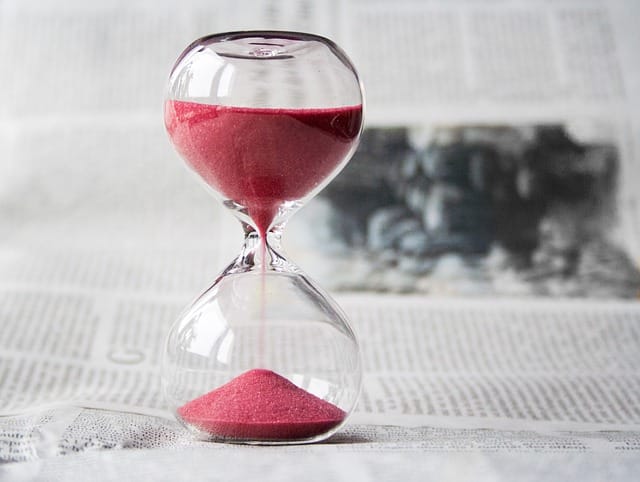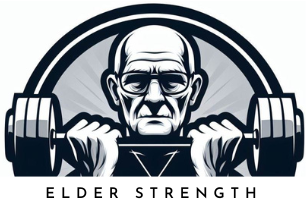Intermittent fasting is yet another health trend with a lot of claimed benefits. But does it work for seniors? Read on to find out because today we will talk about intermittent fasting for seniors.
Intermittent fasting is both a common health trend and a fad diet just like keto and paleo diets. There are tons of diet programs built around the concept, each claiming to be superior to any other form of eating.
But the reality is much more mundane, as always with diet and exercise. There are no shortcuts and fad diets come and go. There are several ways to reach the same goal and individual preference and reactions to a diet play a huge role in what suits your needs.
While there might be some long term benefits to intermittent fasting, the claims are widely exaggerated in many cases. There is one key take away however that we will talk more about in a moment.
Let’s start by looking at what exactly is intermittent fasting.
What Is Intermittent Fasting
Intermittent fasting is an umbrella term for several kinds of short term fasting methods. As the name suggests, all of them are done in an intermittent fashion for short continuous cycles.
Intermittent fasting essentially involves predefined cycles of fasting and eating. The purpose of intermittent fasting is usually either weight loss or improving health through the claimed effects of fasting. In many cases, the goal can be both.
There are several ways to do intermittent fasting. The three most common methods of intermittent fasting are time-restricted feeding, alternate-day fasting, and periodic fasting.
With time-restricted feeding, the fasting period is done daily by restricting the number of hours you can use for feeding. Common example of this is the 16:8 diet where you fast for sixteen hours and are allowed to consume your daily food within the 8 hours. Also skipping breakfast or any other major meal can be considered time-restricted feeding.
Alternate-day fasting involves alternating between fast days and feast days. Fast days can mean either zero food and only water and non-caloric beverages or it can mean less than 25% of your typical daily calories. Feast days you will eat according to your caloric needs and goals (weight loss or weight maintenance).
Periodic fasting is very similar to alternate-day fasting as it can mean any period of consecutive fasting of 24 hours or more. The 5:2 diet is an example of this type of diet. It involves having two fasting days a weak and five normal eating days.
So as you can see they all share the common trend of fasting for relatively short periods of time compared to other forms of fasting that are usually done for several days or weeks.
Benefits Of Intermittent Fasting
There are many claimed health benefits to intermittent fasting that the proponents are making. These include improved fat loss, improved health markers, increased life span, faster metabolism, better athletic performance, and even cancer prevention.
These claims are mostly based on anecdotal evidence and preliminary science because there simply aren’t enough studies done on the long term effects of intermittent fasting.
That said, the preliminary studies do show that intermittent fasting can have some beneficial effects on health. It can possibly decrease insulin resistance and fasting insulin and may improve cardiovascular and metabolic health.
There is also some evidence that intermittent fasting can help some people with weight loss and management. While the preliminary data and anecdotal evidence show some possible health benefits, you have to keep in mind that there is no data on the long term effects of intermittent fasting.
Dangers of Intermittent Fasting
The preliminary clinical studies have shown that short-term intermittent fasting can cause some minor adverse effects like headaches, weakness, hunger (who would have guessed?) and even fainting.
Long term fasting has been associated with eating disorders and malnutrition as well as increased susceptibility to infectious diseases.
Besides those, there is not enough information to know how it affects health in the long term so it’s a gamble really. There is some evidence that fasting and calorie restriction increases lifespan in other animals but we don’t know how it really affects humans.
To make things even more risky for seniors, there are virtually no studies on intermittent fasting performed in senior or elderly age groups.
So it’s possible that intermittent fasting could increase your lifespan and improve your health or it’s possible it does the opposite. It’s also possible it doesn’t do either or that there is a large individual variability.
There definitely seems to be huge variability in how people react to fasting. Some people do it naturally without any trouble while other people get hypoglycemic and nauseous very easily if they don’t eat regularly.
So if you are thinking about trying intermittent fasting, start very light and talk to your doctor first. Your doctor is the only person who can asses how periodic fasting might affect your possible health issues and medications.
The Truth About Intermittent Fasting for Seniors
The truth about intermittent fasting is that it isn’t some magic bullet for weight loss and improving health. It’s just a dietary tool that you can use if you find it suits your lifestyle. It’s also a fad diet.
The scientific evidence on its efficacy is still only preliminary and we don’t know how it will affect your health in the long run. That said, I actually do intermittent fasting myself. I follow the 16:8 principle loosely, which basically means I skip breakfast.

I do this for a couple of reasons. The first is that I’m not hungry in the morning and the second is that I love eating larger meals. I have a desk job so my activity levels are limited even though I’m otherwise active.
If I eat the typical recommended 3 meals with a snack in between, the meals will be very small. I prefer eating one large meal at lunch, a smaller one at dinner and another smaller one before bed. I typically try to squeeze them in the 8-hour window but I’m not pedantic about it. If it goes to 10 hours, so be it, I’m not going to sweat over it.
And this is the key take away intermittent fasting as a trend has shown: The amount of daily meals and at what time you eat them doesn’t really seem to matter. The only thing that matters is what you eat and how much you eat.
So if you eat exactly the same amount of calories with the same macronutrient split on one meal vs six meals makes no difference. It’s only a matter of personal preference.
Some people do much better with the six small meals. They don’t like feeling full, they don’t like feeling hungry either and they find eating regularly during the day helps keep their blood sugar in control.
Some people like to eat big. They don’t mind the hunger and can function well with an empty stomach as long as they know they can fill their stomach at the end of the day. This kind of person might eat a single meal or two meals a day and absolutely love it.
I’m somewhere in between. I’m not hungry in the morning and eating breakfast makes me sluggish. I also find it much easier to control my weight by limiting the number of meals I have. And I love eating big. Nothing frustrates me more than eating tiny portions several times a day.
I’d rather fast for a whole day and feast at night to have a full stomach than eat six small meals. But since I have the option, I do something in between those two extremes.
I force-fed breakfast to myself for years because the common health recommendation was that breakfast is the most important meal of the day and that you have to eat regularly.
Intermittent fasting taught me that meal timing and the number of meals really don’t matter if you are healthy. This is a great example of where you should follow your gut, literally.
This means that if you are otherwise healthy and interested in intermittent fasting, it just might be the thing for you. The only way to find is to try it for yourself. I recommend starting with the daily fasting window like the 16:8 diet instead of the more extreme full day fasts.
If you want a good guide to following the diet, my recommendation is the book Eat Stop Eat by Brad Pilon. It was essentially the first serious book about intermittent fasting and most books that have come after it are just watered-down imitations.
Conclusion
I hope you found this short overview of intermittent fasting for seniors useful. If you have any questions, please leave them in the comments section below.
Intermittent fasting can definitely be a useful tool for weight loss and weight management if you don’t have trouble with blood sugar control and like eating a couple of large meals instead of several smaller ones a day.
That said it’s nothing magical. The preliminary science suggests it might have some positive health benefits but the long term effects are inconclusive. It’s completely possible the positive benefits are due to weight reduction and not actually a function of the fasting.
Personally I see intermittent fasting just as a form of flexible dieting. Learning about it has taught me that it’s not crucial for health, metabolism and building muscle that you eat every couple of hours.
When you think about it would be kind of ridiculous that we couldn’t survive just fine for half a day without food. I’d imagine in the paleolithic era our ancestors had to endure that kind of fasts every single day as gathering food was arduous. And they most certainly had longer times of famine as well.
So I think it’s safe to assume the modern human can survive just fine to lunch without the breakfast croissant, don’t you think?
If you enjoyed this article, please subscribe to my newsletter which includes a free weight training routine for seniors, bookmark my site and share in social media!


The website is very well thought out and I love how informative the post is with helping the elderly find out ways to safely and progressively become healthier. This is well thought out and in a nice format.
Thank you Cody! Glad to hear you found my site useful.
Hi Jukkah,
This is a great and timely post.
We started on intermittent fasting a couple of months ago. We normally have our dinner at around 7pm. Our first meal after that at around 11 am next morning. We have coffee (with just cream, no sugar) in the morning and this works for us so far. We think we can sustain it, which we believe would be critical for it to be a success.
Glad you liked it and that you have found a routine that works for you. I agree with you that any diet has to be sustainable for it to be successful for weight loss or control.
Im sorry, but if U have cream with your coffee, this is not a clean fast. Any calories consumed during fasting produces an insulin response.that hinders Ketosis. Try a clean fast with coffee and no cream or sugar or water,if you can , and notice the difference.!.
No need to apologize Lorraine! Sure a lot of cream can induce an insulin response and take you out of the fasted state but it’s still relative. If you ad a teaspoon to you morning coffee and fast for over 12 hours, it will likely have no effect whatsoever. But if you eat heaps of coffee with milk and sugar all day during your “fast”, that’s definitely not fasting. And drinking water shouldn’t affect your fasted state. I personally find that I need to drink more during the morning hours when I’m in a fasted state or I will get dehydrated.